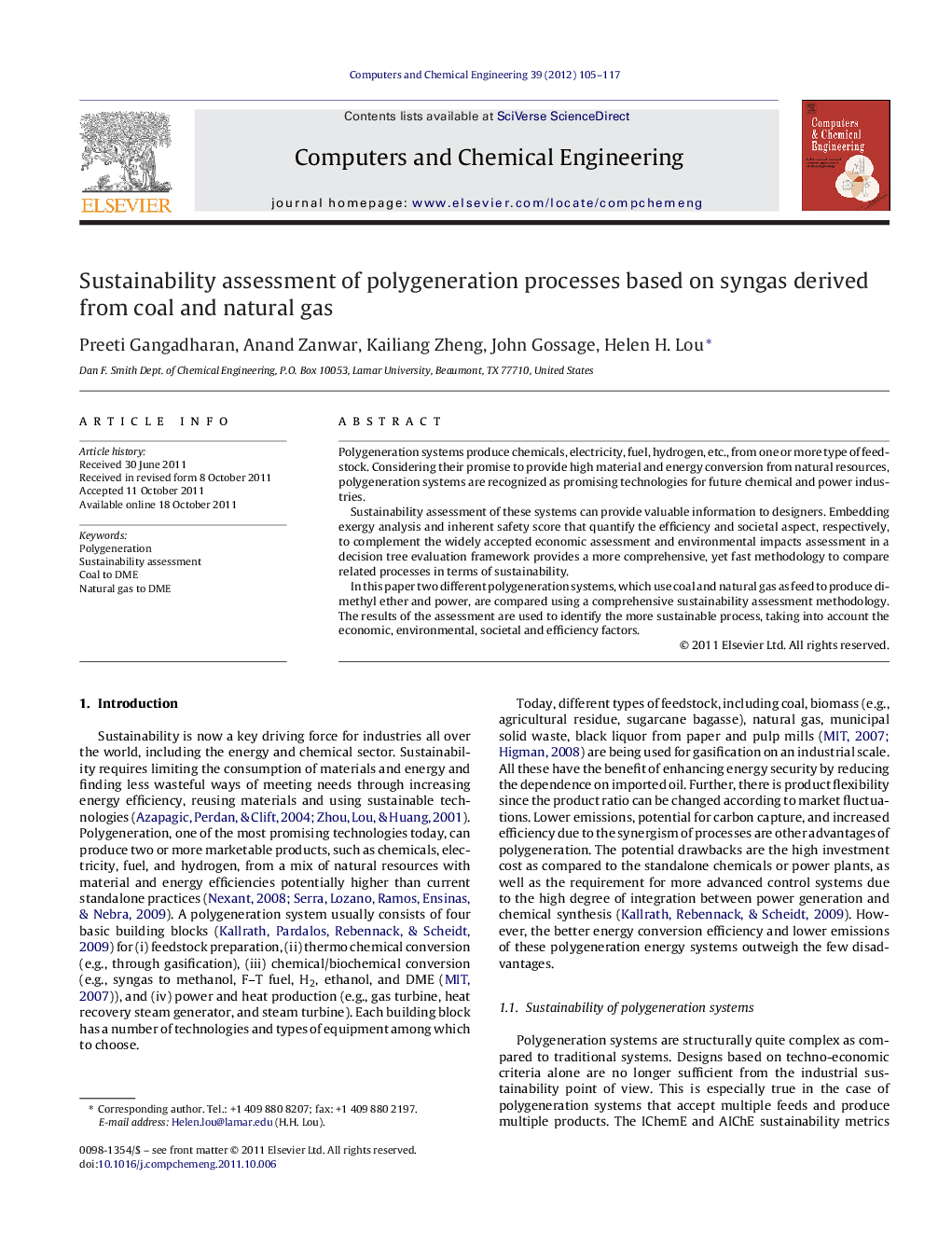| Article ID | Journal | Published Year | Pages | File Type |
|---|---|---|---|---|
| 172883 | Computers & Chemical Engineering | 2012 | 13 Pages |
Polygeneration systems produce chemicals, electricity, fuel, hydrogen, etc., from one or more type of feedstock. Considering their promise to provide high material and energy conversion from natural resources, polygeneration systems are recognized as promising technologies for future chemical and power industries.Sustainability assessment of these systems can provide valuable information to designers. Embedding exergy analysis and inherent safety score that quantify the efficiency and societal aspect, respectively, to complement the widely accepted economic assessment and environmental impacts assessment in a decision tree evaluation framework provides a more comprehensive, yet fast methodology to compare related processes in terms of sustainability.In this paper two different polygeneration systems, which use coal and natural gas as feed to produce di-methyl ether and power, are compared using a comprehensive sustainability assessment methodology. The results of the assessment are used to identify the more sustainable process, taking into account the economic, environmental, societal and efficiency factors.
► Two polygeneration processes using coal and natural gas as the feedstock were simulated. ► The sustainability of the processes was assessed systematically. ► This approach facilitates screening during early design stage.
